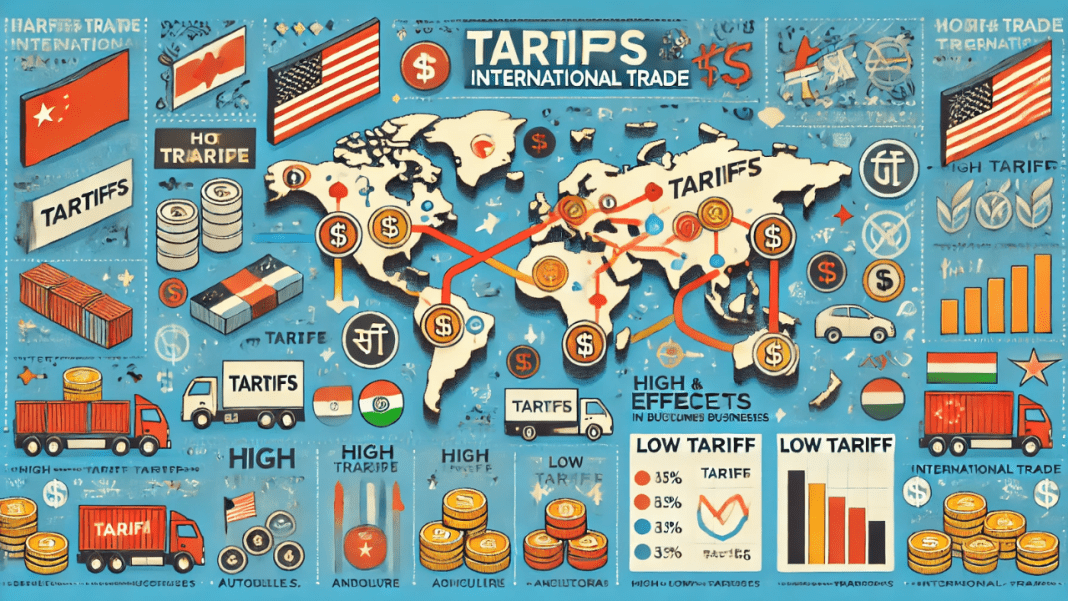For the last several days, you must have heard much news about tariffs—like the US imposed a 25% tariff on Canada and Mexico or India reduced the tariff on American Bourbon whiskey. But do you know what a tariff is and why it is imposed? If not, then let us understand it in detail.
What is tariff?
First of all, in international business, tariff is the tax that is imposed on the import of any product. It is also called custom duty. Usually its burden falls on consumers. In a way, tariff is a type of tax, which is the source of income of the country.
Types of tariff
There are mainly two types of tariffs:
- Reciprocal tariff – It is also called reciprocal duty. When a country imposes the same duty in response to the duty imposed by another country, it is called reciprocal tariff.
- Retaliatory Tariff – It is also called retaliatory duty. It is imposed when a country increases tariffs on another country as part of trade retaliation.
For example, in 2018, the US imposed high tariffs on steel and aluminum, in response to which India increased tariffs on 29 US products. Meaning that there is no significant difference between the two tariffs.
Table of Contents
Why are tariffs imposed?
Now the question arises why are they imposed and what is their impact. So this tariff is imposed to protect the domestic industry from imports, promote local products and employment, and reduce foreign competition. At the same time, high tariffs increase inflation. For example, if an automobile company imports a part that is not made in the country, then the prices of vehicles will increase due to high tariffs.
Recently, US President Donald Trump called India a ‘tariff king’ in praise of India. According to the Global Trade Research Initiative, this claim is not true. According to them, the US itself imposes high tariffs on many products. Such as: 188% on dairy products, 132% on fruits and vegetables, 193% on grains and food products, 164% on oilseeds and oil, 150% on tobacco, and 53% on coffee, tea, cocoa and spices.
Are the US tariffs in accordance with WTO rules?
According to the World Trade Organization (WTO), the tariffs imposed by India are in accordance with the rules, but the US violates WTO rules in many cases. Because according to its rules, all member countries have to submit a fixed tariff schedule.





